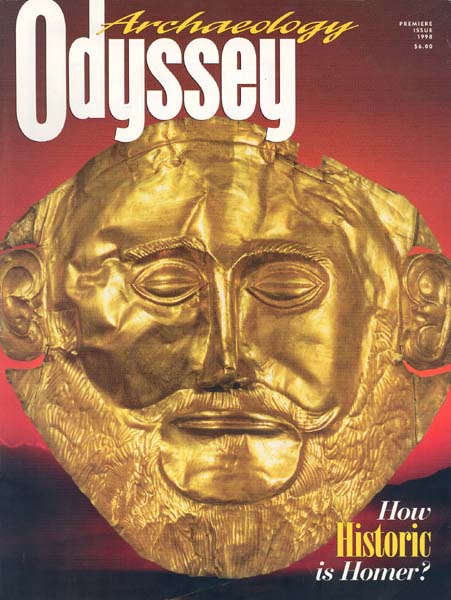Archaeology Odyssey, Winter 1998

Features
King Agamemnon rose to his feet: “Friends, Zeus vowed to me long ago that I should never embark for home till I had brought the walls of Ilium crashing down.” 016 “Metal object, biconvex.” Thus wrote English archaeologist Donald Easton in his excavation diary in July 1995, dispassionately recording what every excavator at […]
Did a man named Homer really live? And are the poems attributed to him, the Iliad and the Odyssey, rooted in actual history? Generations of scholars have wrestled with these problems and provided widely different solutions. But does it really matter? Perhaps the scholarly disputes over the historicity of Homer and his tales are […]
The Iliad and the Odyssey were composed nearly 3,000 years ago, and they are still constantly translated, imitated, dramatized and—above all—read. In a world in which few things stay in fashion for more than a single season, that is indeed a surprising fact. It is also a fact that distinguishes our society from most […]
I would make the startling suggestion that the alphabet was invented by a single human being, who created this remarkable technology to record the Greek hexameters of the poet we call Homer.
Barry Powell should have listened to his grammar school teacher. It was the Phoenicians who invented the alphabet.
Two of the oldest temples in the world—dating back more than 8,000 years—have recently been found at a site called Ain Ghazal, outside of Amman, Jordan. The site is already famous for its lifelike, nearly life-size plaster statues. With the two temples discovered in 1995 and 1996, as well as other finds, Ain Ghazal […]
